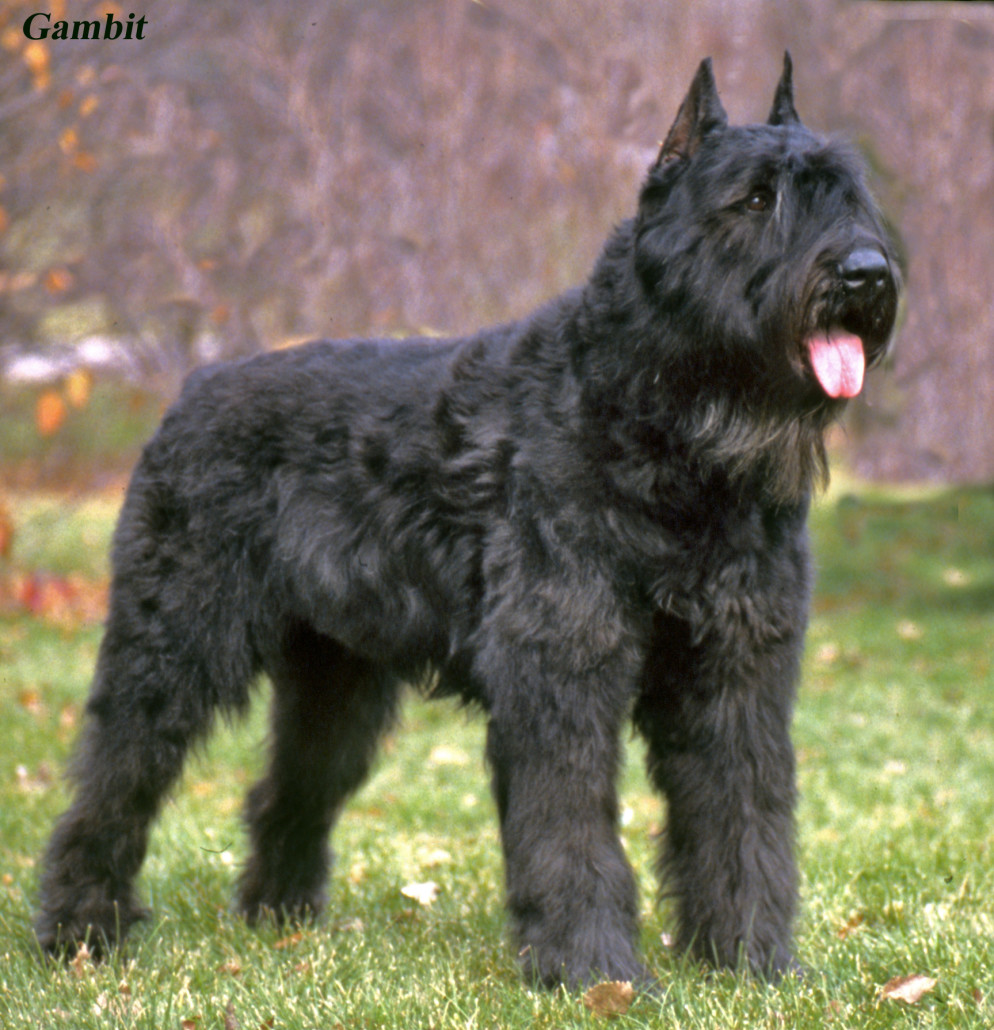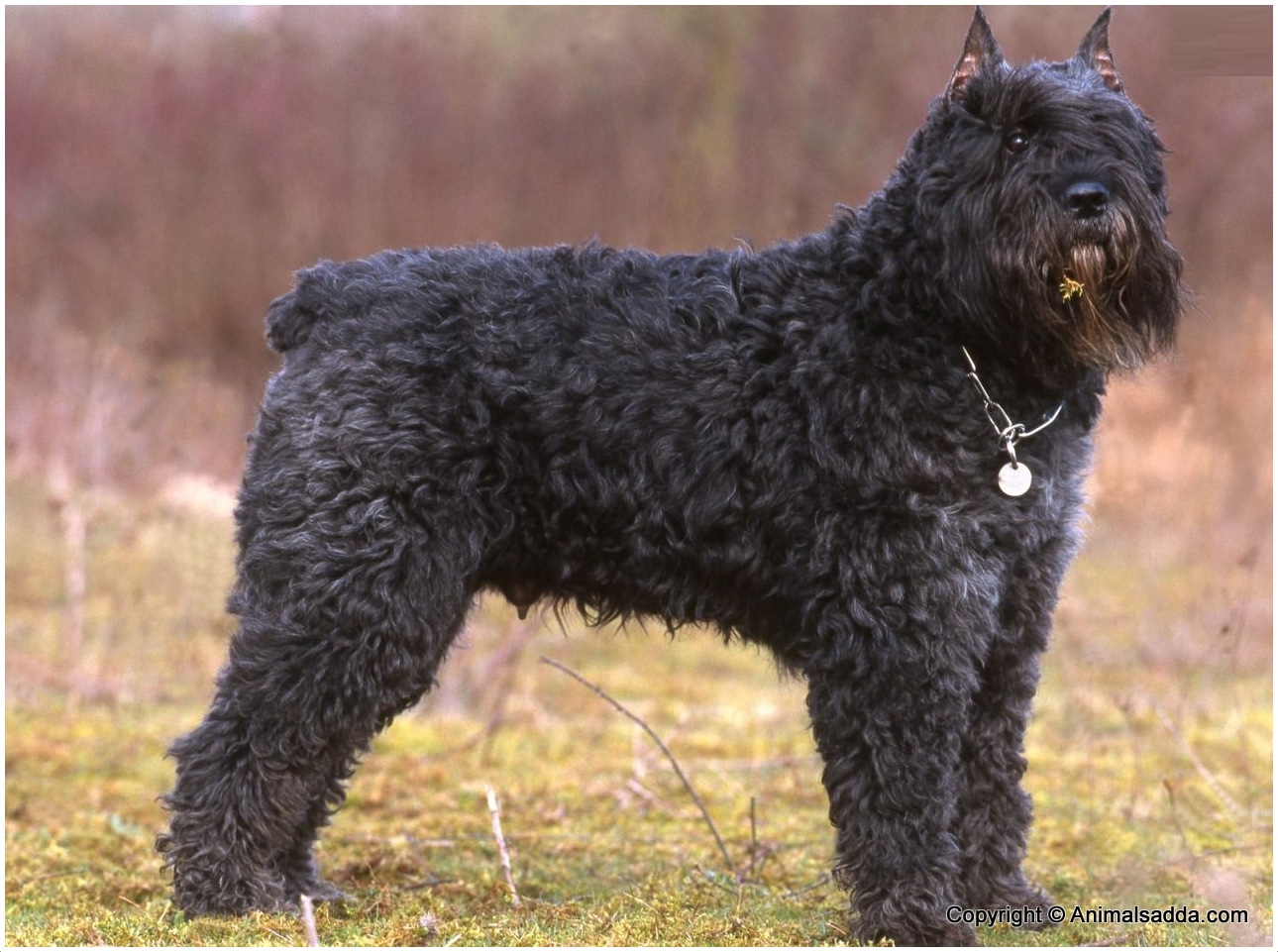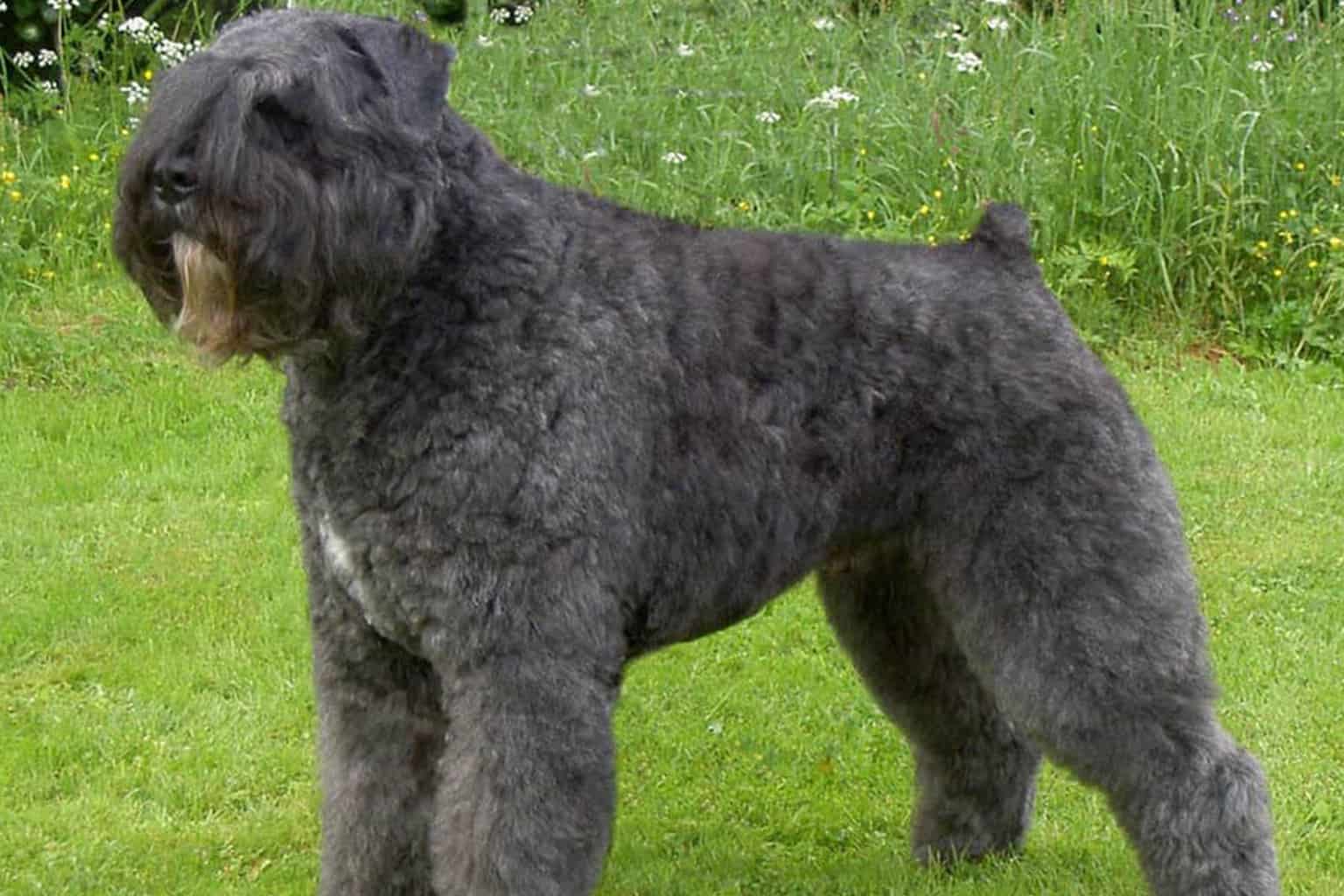Bouvier Des Flandres: The Rugged, Loyal Guardian
Embark on a journey to discover the magnificent Bouvier des Flandres, a breed steeped in history and renowned for its unwavering loyalty and remarkable versatility. Originating from the windswept plains of Flanders, a region spanning Belgium and northern France, this robust working dog has transitioned from a dedicated farmhand to a cherished family member, protector, and even a skilled service animal. If you're seeking a canine companion with a formidable presence, a keen intellect, and a heart full of devotion, the Bouvier des Flandres might just be the perfect match for your home and lifestyle.
This comprehensive guide delves deep into everything you need to know about the Bouvier des Flandres, from its fascinating origins and distinctive appearance to its complex temperament, essential care requirements, and suitability as a family pet or working dog. We’ll explore its unique characteristics, grooming needs, training considerations, and important health aspects, providing you with the insights necessary to understand and appreciate this truly exceptional breed. Join us as we uncover the enduring legacy and admirable qualities that make the Bouvier des Flandres a beloved and respected canine companion across the globe.
Unveiling the Bouvier des Flandres: A Glimpse into its Origins
The history of the Bouvier des Flandres is as rugged and resilient as the breed itself. This herding dog breed hails from Flanders, a historical region that encompasses parts of modern-day Belgium and northern France. The name "Bouvier des Flandres" literally translates to "cow herder from Flanders," a testament to its original purpose. These dogs were not bred for beauty contests or leisurely strolls; they were bred for hard work on the farm. Their tasks were diverse and demanding, including herding cattle, pulling carts, and serving as vigilant watchdogs.
The exact origins of the Bouvier des Flandres are somewhat shrouded in the mists of time, with some theories suggesting it may have resulted from crossing breeds like the Griffon and the Beauceron. Regardless of the precise lineage, what is clear is that the breed was well underway in the early 1900s, rapidly establishing itself as an indispensable asset to farmers in the region. Their muscular build and robust nature made them perfectly suited for the strenuous demands of rural life, showcasing great strength without any sign of heaviness or clumsiness in their overall makeup.
From Farm to Family: The Bouvier's Enduring Legacy
The legacy of the Bouvier des Flandres, however, faced a severe threat during World War I. The Flanders region became a brutal battlefield, and much of the land, along with its inhabitants and livestock, was destroyed. The breed was almost lost entirely, a tragic consequence of the war. Fortunately, dedicated enthusiasts worked tirelessly to save the Bouvier, ensuring its survival. This period of near extinction only solidified the breed's reputation for resilience and adaptability.
Following the war, efforts to standardize and promote the breed gained momentum. The Club National Belge du Bouvier des Flandres, formed in Ghent in early 1922, played a crucial role in formulating specific qualities of type for future breeding, ensuring the preservation of its working characteristics. The Bouvier came to America in the late 1920s, and its popularity has since extended throughout the US and Canada. Today, the American Bouvier des Flandres Club (ABDFC) is the parent club recognized by the American Kennel Club (AKC) to promote and educate about the Bouvier des Flandres dog, continuing the work of preserving this amazing breed.
Defining the Bouvier des Flandres: Appearance and Breed Standards
The Bouvier des Flandres is a large and powerful breed from the herding group, exuding an impression of great strength and solidity. They possess a stocky, compact build, giving them a formidable yet balanced appearance. According to breed standards, a Bouvier should weigh between 70 and 110 pounds, though some males can reach up to 125 pounds, like Dixie, a silver brindle Bouvier at 30 inches and 125 pounds at 9 years of age. Their height typically ranges from 23.5 to 27.5 inches at the shoulder, with males generally being larger than females.
Their muscular frame is designed for endurance and power, reflecting their history as working farm dogs. The head is large and well-proportioned, featuring a distinctive beard and mustache that give them a rugged, somewhat imposing look. Their dark, intelligent eyes convey a sense of alertness and deep thought, while their ears are often cropped in countries where it is permitted, though natural ears are increasingly common and equally expressive. The tail is traditionally docked short in many regions, but an undocked tail is also acceptable and becoming more prevalent.
The Distinctive Double Coat
One of the most defining features of the Bouvier des Flandres is its unique coat. They boast a tousled, harsh double coat that is designed to protect them from the harsh weather conditions of Flanders. The outer coat is rough, coarse, and shaggy, while the undercoat is dense and soft, providing excellent insulation. This combination gives them a somewhat disheveled yet charming appearance. The coat color can vary, with common colors including fawn, black, grey, brindle, or salt and pepper. Solid black is also seen, but it's less common than the grizzled or brindle patterns.
This distinctive coat, while beautiful, requires significant attention to maintain its health and appearance. It's not just for aesthetics; it's a functional aspect of the breed, protecting them from elements and thorns during their working duties. Understanding and committing to the grooming needs of the Bouvier des Flandres is crucial for any potential owner, as neglect can lead to matting and skin issues, compromising both the dog's comfort and health.
The Bouvier Des Flandres Temperament: A Loyal and Protective Companion
The temperament of the Bouvier des Flandres is perhaps its most celebrated attribute. They are renowned for being smart, protective, and good with families and other pets when properly socialized. Doyen d'un tempérament stable, protecteur et loyal (endowed with a stable, protective, and loyal temperament), the Bouvier is an excellent shepherd, herd, and guard dog, but it can also make an excellent animal de compagnie (pet).
Their protective instincts are strong, stemming from their history as farm guardians. They possess a keen sense of threat discrimination, meaning they are excellent at discerning genuine threats from harmless situations. This makes them superb watchdogs and protectors of their home and family. However, this protective nature requires early and consistent socialization to ensure they are well-adjusted and do not become overly suspicious of strangers or new situations. A well-socialized Bouvier is confident, calm, and approachable, while still maintaining a watchful eye.
Intelligence and Trainability
The Bouvier des Flandres is an incredibly intelligent breed, a trait that makes them highly trainable but also means they require mental stimulation to prevent boredom and destructive behaviors. Their intelligence, coupled with a keen scent, qualifies many Bouviers to excel in police work, tracking, and drug detection. This mental acuity also makes them suitable for a variety of dog sports and activities, such as agility, obedience, and even search and rescue.
Training a Bouvier requires consistency, patience, and a firm yet gentle hand. They respond best to positive reinforcement methods and thrive on having a "job" to do, even if that job is simply learning new commands or participating in structured play. Their desire to please their owners, combined with their intelligence, makes them eager learners. However, their independent nature, a remnant of their herding days where they often had to make decisions on their own, means they can sometimes be stubborn. Early training and socialization are paramount to harnessing their potential and ensuring they grow into well-behaved, balanced companions.
Caring for Your Bouvier des Flandres: Grooming, Exercise, and Nutrition
Caring for a Bouvier des Flandres involves a commitment to their specific needs, particularly concerning their unique double coat, substantial exercise requirements, and a balanced diet. Their harsh, tousled coat, while beautiful, demands regular attention to prevent matting and maintain skin health. Owners should be prepared for frequent brushing, at least two to three times a week, to remove loose hair and prevent tangles. Professional grooming every few months is also highly recommended to keep the coat in optimal condition, including stripping or clipping to manage its density and texture. Neglecting their coat can lead to painful mats and skin infections, making grooming a non-negotiable aspect of Bouvier ownership.
Beyond coat care, regular nail trims, ear cleaning, and dental hygiene are essential for their overall well-being. Their ears, whether natural or cropped, need to be checked frequently for signs of infection, especially given their dense ear hair. Establishing a consistent grooming routine from puppyhood will help your Bouvier become accustomed to the process, making it a more pleasant experience for both dog and owner.
Exercise Needs for a Working Breed
The Bouvier des Flandres was once a hard-working dog bred to herd cattle and use his brute force around the farm, meaning they have significant exercise needs. They are not especially made for apartment living; they need to move and love large spaces. A Bouvier is fully happy when it can run and practice activities such as agility. They adore water and love to swim in rivers or lakes, making water activities an excellent way to burn off energy.
Daily vigorous exercise is crucial for a Bouvier, ideally including long walks, runs, or active play sessions. Their muscular build thrives on physical activity, which also helps to keep them mentally stimulated and prevents boredom-related destructive behaviors. Activities like hiking, dog sports, or even simply playing fetch in a securely fenced yard can satisfy their need for movement. Without adequate exercise, a Bouvier can become restless, anxious, and prone to weight gain, impacting their overall health and happiness.
When it comes to nutrition, a high-quality diet appropriate for a large, active breed is essential. Consult with your veterinarian to determine the best type and amount of food for your Bouvier, taking into account their age, activity level, and any specific health considerations. Monitoring their weight is important to prevent obesity, which can exacerbate joint problems common in large breeds.
Training and Socialization: Shaping a Well-Adjusted Bouvier
Training and socialization are foundational pillars for raising a well-adjusted and happy Bouvier des Flandres. Given their intelligence and protective instincts, early and consistent efforts in these areas are non-negotiable. Puppy classes are highly recommended, not only for teaching basic obedience commands but also for providing crucial early socialization opportunities. Exposing your Bouvier puppy to a wide variety of people, places, sounds, and other animals from a young age is vital to help them develop into confident, well-rounded adults.
The Bouvier's intelligence means they pick up commands quickly, but their independent nature requires a consistent and firm, yet positive, training approach. They respond best to methods that use praise, treats, and toys as rewards. Harsh corrections or punishment can be detrimental, potentially leading to fear or aggression. Focus on clear, concise commands and practice regularly to reinforce learning. Their desire to please, coupled with their mental acuity, makes them excellent candidates for advanced obedience, tracking, agility, and even protection work, provided the training is done responsibly and ethically.
Socialization should extend beyond puppyhood. Continue to expose your adult Bouvier to new experiences to maintain their adaptability and prevent them from becoming overly wary or protective. Regular walks in public areas, supervised interactions with other well-behaved dogs, and visits from friends and family can all contribute to a well-socialized Bouvier. Remember, a Bouvier that is confident and comfortable in various situations is a joy to live with, embodying the breed's potential as a versatile and loyal companion.
Health Considerations for the Bouvier des Flandres
Like all dog breeds, the Bouvier des Flandres is prone to certain health conditions, and responsible ownership includes being aware of these potential issues. While generally a robust breed, understanding common health problems to watch for is crucial for ensuring a long and healthy life for your Bouvier. Reputable breeders will screen their breeding stock for genetic conditions, and prospective owners should always inquire about health clearances for the parents of any puppy they consider.
Some of the health concerns seen in the Bouvier des Flandres include:
- Hip and Elbow Dysplasia: These are common orthopedic conditions in large breeds, where the joints do not form properly, leading to arthritis and lameness. Screening through X-rays is standard for breeding dogs.
- Subaortic Stenosis (SAS): A heart condition where there is a narrowing below the aortic valve, which can impede blood flow from the heart.
- Hypothyroidism: An underactive thyroid gland, which can lead to weight gain, lethargy, and skin problems. It is manageable with medication.
- Eye Problems: Including cataracts, glaucoma, and entropion/ectropion (eyelid abnormalities). Regular eye exams by a veterinary ophthalmologist are recommended.
- Bloat (Gastric Dilatation-Volvulus or GDV): A life-threatening condition common in deep-chested breeds where the stomach twists, trapping gas and food. Symptoms include a distended abdomen, unproductive retching, and restlessness. Immediate veterinary attention is critical.
- Laryngeal Paralysis: A condition affecting the larynx, making it difficult for the dog to breathe, especially during exercise or in hot weather.
Maintaining a healthy weight, providing a high-quality diet, and ensuring adequate exercise can help mitigate the risk of some of these conditions. Regular veterinary check-ups are essential for early detection and management of any health issues. By being proactive and informed, you can significantly contribute to the well-being and longevity of your Bouvier des Flandres.
Is the Bouvier des Flandres Right for You?
Deciding if the Bouvier des Flandres is the right breed for you involves a thoughtful assessment of your lifestyle, living situation, and commitment level. This is not a breed for the faint of heart or those seeking a low-maintenance companion. The Bouvier is a large, powerful, and intelligent dog with significant needs that must be met to ensure its happiness and your satisfaction.
Consider the following:
- Space Requirements: While not necessarily needing acres of land, a Bouvier des Flandres is not especially made for apartment living. They need space to move, preferably a securely fenced yard where they can run and play.
- Exercise Commitment: These are active dogs who need consistent, vigorous exercise daily. If you lead a sedentary lifestyle, a Bouvier may not be the best fit. They thrive on activities like long walks, runs, hiking, and dog sports.
- Grooming Dedication: Their distinctive double coat requires substantial grooming. Are you prepared for regular brushing, stripping, or professional grooming appointments? Neglect will lead to painful matting.
- Training and Socialization: The Bouvier's intelligence and protective instincts demand early, consistent training and ongoing socialization. This requires time, patience, and a commitment to positive reinforcement methods.
- Dominant Personality: While loyal and loving, Bouviers can be strong-willed. They need a confident, experienced owner who can provide consistent leadership and structure.
- Family Compatibility: When properly socialized, Bouviers are known to be good with families and other pets. Their protective nature makes them excellent guardians, but supervision is always wise, especially with very young children.
- Lifespan and Cost: Bouviers typically live 10-12 years. Be prepared for the financial commitment of a large dog, including food, veterinary care, grooming, and potential health treatments.
If you are an active individual or family, have experience with large, strong-willed breeds, are committed to consistent training and grooming, and can provide ample space and mental stimulation, then the Bouvier des Flandres could be an incredibly rewarding companion. Their loyalty, intelligence, and protective nature make them truly exceptional dogs for the right owner.
The Bouvier Des Flandres in Modern Roles: Beyond the Farm
While the Bouvier des Flandres was originally bred to be a versatile farm dog, its intelligence, adaptability, and impressive physical capabilities have allowed it to transition seamlessly into a variety of modern roles. Today, the Bouvier des Flandres acts as much more than just a farm dog; it serves as a cherished family friend, a steadfast protector, a skilled shepherd, and even a compassionate guide dog for the blind or hearing impaired.
Their keen sense of threat discrimination and excellent scenting abilities make them highly sought after in professional working capacities. Many Bouviers excel in police work, demonstrating remarkable aptitude for tracking, drug detection, and even apprehension. Their calm demeanor under pressure, combined with their imposing presence, makes them effective partners for law enforcement. Furthermore, their versatility extends to various dog sports, where they showcase their agility, obedience, and natural herding instincts. Le Bouvier des Flandres est pleinement heureux lorsqu’il peut courir et pratiquer des activités telles que l’agility (The Bouvier des Flandres is fully happy when it can run and practice activities such as agility).
The American Bouvier des Flandres Club (ABDFC) and regional clubs like the Greater Washington Bouvier des Flandres Club are devoted to educating the public and promoting the breed's admirable qualities across these diverse roles. The legacy of the Bouvier has indeed produced many admirable qualities in this breed, proving that this rugged, loyal guardian is not only a historical treasure but also a valuable and adaptable companion for the contemporary world, enriching the lives of those fortunate enough to share their homes with them.
From the fields of Flanders to urban homes and specialized working environments, the Bouvier des Flandres continues to impress with its unwavering loyalty, formidable presence, and profound intelligence. This breed is a testament to the enduring bond between humans and dogs, showcasing how a working animal can become an integral part of our lives, offering protection, companionship, and endless joy.
We hope this comprehensive guide has provided you with valuable insights into the incredible Bouvier des Flandres. Are you a Bouvier owner or considering welcoming one into your life? Share your experiences and thoughts in the comments below! If you found this article helpful, please consider sharing it with other dog enthusiasts or exploring more of our breed guides.

Bouvier des Flandres Breed Guide - Learn about the Bouvier des Flandres.

Bouvier Des Flandres - Information, Health & Characteristics

Bouvier Des Flandres - Information, Health & Characteristics